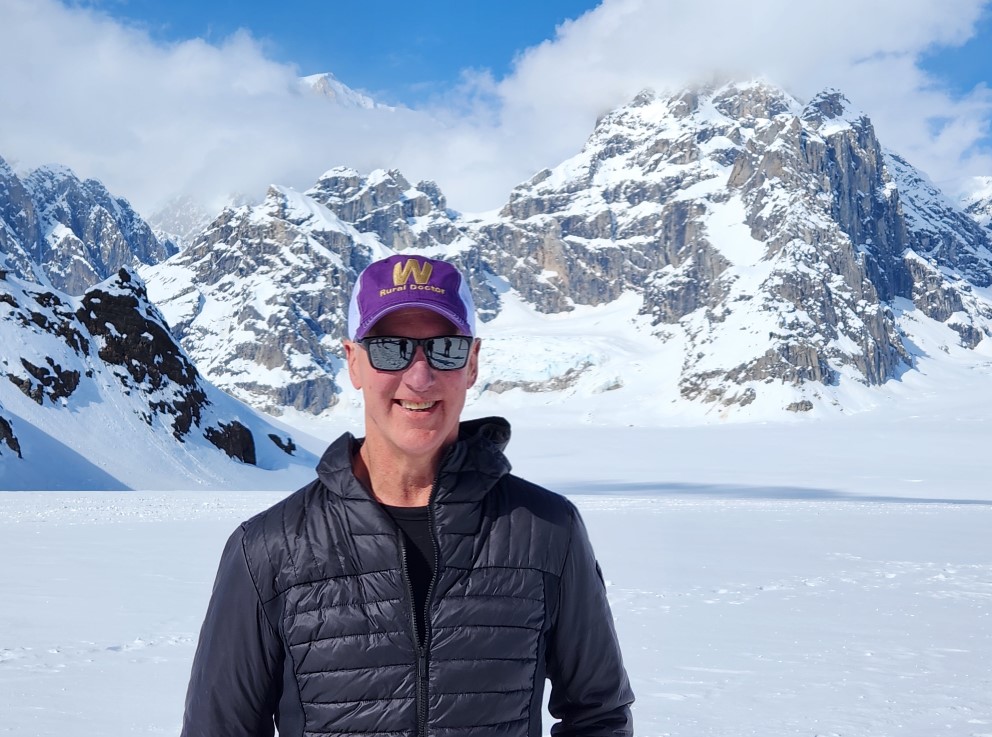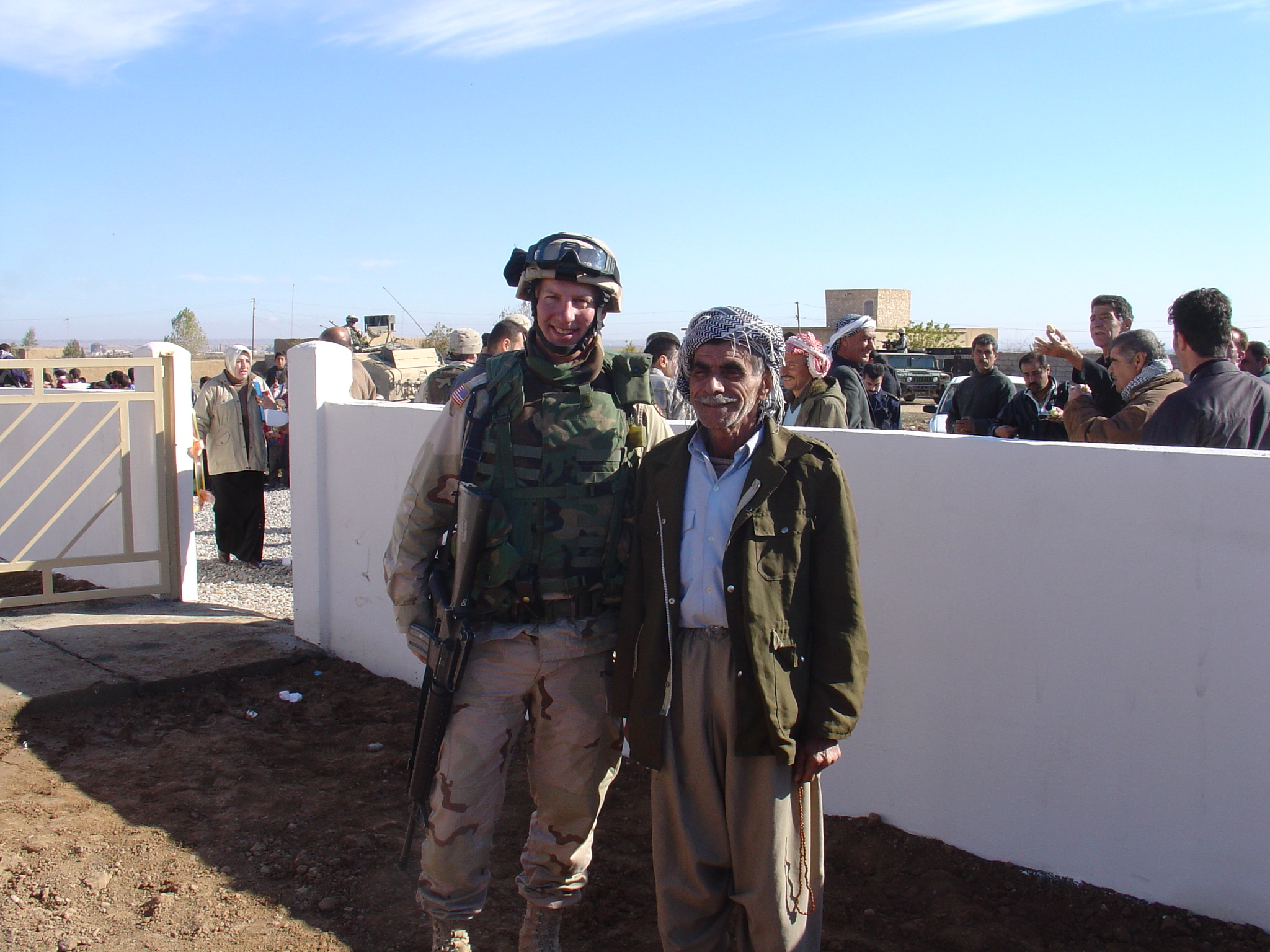 For Dr. Frank Batcha, Idaho WWAMI’s Assistant Clinical Dean, his decision to enlist in the Idaho Army National Guard years ago was a deeply personal calling rooted in family history.
For Dr. Frank Batcha, Idaho WWAMI’s Assistant Clinical Dean, his decision to enlist in the Idaho Army National Guard years ago was a deeply personal calling rooted in family history.
“My father was a WWII veteran, coming ashore in Normandy at Omaha Beach and fighting in the hedgerow country in France until he was wounded,” he said. “Given this history, I always felt compelled to serve my country as a tribute to all the men and women who came before me to protect our democracy.”
It was a decision that shaped his career and outlook as a physician, educator, and leader.
Batcha served from 2001 to 2009, stationed at Gowen Field in Boise. From October 2004 to November 2005, he was deployed to Iraq, where he served as Brigade Surgeon for the 116th Brigade Combat Team (BCT) stationed at Forward Operating Base Warrior in Kirkuk. His deployment brought him face to face with the realities of combat medicine and the camaraderie that defines military life.
“I’m sure most veterans would say that the most rewarding part of serving is forming the bonds of camaraderie with your other service members,” he said. “They say you fight for the guy on your left and the guy on your right. Having served in a combat zone, having the opportunity to support the soldiers under my care, to aid and protect them to the best of my ability, and to have that same care reciprocated in that environment was one of the most rewarding experiences in my life.”
Batcha’s experience as a military physician also continues to inform his leadership approach in medical education.
“One quip we used often in the Army, and which I frequently recycle is, ‘No job is too hard for the guy who doesn’t have to do it,’” he said. “Obviously, this means to think long and hard before asking someone to take on something you wouldn’t take on yourself. Or more importantly, even with a difficult task, to lead from the front. I also depended mightily on the medics and nurses and other soldiers under my command, so assessing their viewpoint was always critical to my decision making. I like to think I still weigh other’s viewpoints and let them share in decision-making.”
Looking back, Batcha remains grateful for the lessons and perspective his service provided, including medical expertise and compassion. As we honor our veterans for their service this month, Batcha emphasizes what the observance means to him.
“I am very grateful we take the time to acknowledge the sacrifices that all American patriots who served in the Armed Forces made, whether serving in combat or not,” he said. “In divisive times, I hope we all reflect on the sacrifices of those millions of men and women who have served and those who have died to protect our liberty and our representative form of government to live lives and to act in a way to honor those veterans.”
From Normandy to Kirkuk, and to classrooms and clinics across Idaho, Dr. Batcha’s journey continues to embody the ideals of service and leadership that Veterans Day seeks to honor.
Learn more about Idaho WWAMI.
